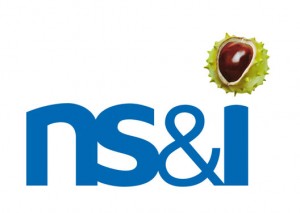
Long time readers will remember my article Money tip #30 – One way to protect your savings from inflation, both tax and risk free singing the praises of National Savings (NS&I) and Investments Index Linked Certificates.
But back in July 2020 NS&I pulled them due to demand, with a Terminator style 'I’ll be back'. Well, now they are. So what is all the fuss about and are they any good?
The inflation dilemma
Pensioners, in particular, who rely on the interest from their life savings in order to live are feeling the pinch and are seeing the real value of their savings diminish (the Bank of England base rate is just 0.5% while inflation is nearer 4-5%). But the problem is compounded for savers who pay high rate or basic rate tax on their income (which is most of us!). This is because interest on savings is taxable. Consequently the actual rate of interest you need to receive in order to beat inflation depends on your marginal rate of income tax. Below is a guide to the headline rate you’d need to secure if your savings are to maintain their value in real terms.
| inflation rate | Equivalent rate required by Basic-rate taxpayer | Equivalent rate required by Higher-rate (40%) tax payer |
| 5% | 6.25% | 8.34% |
| 4% | 5% | 6.25% |
| 3% | 3.75% | 5% |
| 2% | 2.5% | 3.34% |
| 1% | 1.25% | 1.66% |
So how can NS&I Inflation Linked Certificates help?
Traditionally the longer you lock away your savings (with restricted access) the better the interest rate you will secure. But generally speaking the interest rate is fixed so inflation will erode the real value of your money over time. Yes some minor banks and building societies may offer some attractive rates but you must be aware of The dangers of chasing the best savings rates. So step in NS&I with their tax-free inflation beating returns.
So how do NS&I Inflation Linked Certificates work?
To quote the NS&I once you hand over your cash:
''The return you earn is made up of two parts – fixed interest and any positive index-linking – which we add on each anniversary of your investment.
We calculate the index-linking by using the RPI figures that apply to your Certificate at the start and end of each year of investment (not the monthly changes in between). If the index-linking is positive – i.e. if the RPI end level is higher than the RPI start level – then we add it to your investment. If the index-linking is negative (known as ‘deflation’) you won’t receive any index-linking. But don’t worry, we won’t reduce the value of your investment.
We calculate the fixed interest separately at the rate that applies for that year, and add that to your investment too. You’ll always receive the fixed interest so your investment is guaranteed to grow in value year on year.''
What are the advantages?
- One attraction of Index-linked savings certificates is that they are backed by the Government which effectively means your capital is 100% safe (even safer than saving with your bank).
- In addition, returns are tax-free and are guaranteed to keep pace with the Retail Price Index (RPI) for a fixed term. The return is made up of a set interest rate (currently 0.5%) plus the RPI figure, fixed for five years.
- For income tax payers, particularly high-rate ones, in today’s low interest rate world Index-linked savings certificates now offer competitive yet inflation protected returns because of their tax-free status. And don’t forget most people’s investment aim is growth in excess of inflation in any event.
Are there any disadvantages to these Index Linked Saving Certificates?
- You can only invest up to £15,000 in this latest issue. Plus you have to leave you money in for the full 5 year term to get the full inflation beating benefit but you cash-in early if you wish – but you will lose interest, and receive no interest if you exit within the first 12 months.
- You are banking on inflation continuing to rise. If inflation was to fall and interest rates were to rise then your money would be better off elsewhere,
So is it all good news?
No. Again like the Terminator the sequel, it is not as good as the original. Before NS&I pulled the plug on the old issues you used to get inflation plus 1% (rather than 0.5% as you do now). In addition, there was a 3 year version. But alas, the newly released version is better than nothing.
So are they worth it?
Yes especially for income tax payers (and the highest of those in particular)
How do I invest?
Simply follow this link – How to invest in Index-linked Savings Certificates